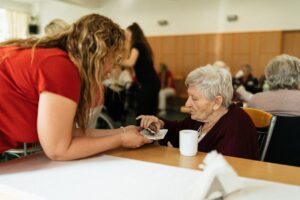There is a Hidden Power of Daily Functioning Evidence in SSDI Claims
Medical records are essential — but they are only half the story in a Social Security Disability case. The other half? How your condition affects your daily life.
The SSA relies heavily on evidence of daily functioning to determine whether you can sustain full-time work. This is where many claims fail — not because the person isn’t disabled, but because they didn’t prove how disability affects everyday life.
Why Daily Activities Matter
ALJs don’t deny claims because you do chores — they deny based on how you do them.
Two statements that sound similar can lead to very different results:
❌ “I cook, clean, and go shopping.”
✅ “I try to cook simple meals, but I need breaks, and some days I can’t do it at all.”
Disability is not about never doing tasks — it’s about whether you can perform activities consistently, safely, and without overwhelming pain or fatigue.
Key Daily Functioning Evidence
Strong claims include documentation of:
- Limited standing/walking tolerance
- Difficulty concentrating or focusing
- Inability to complete tasks without rest
- Help needed for chores, bathing, or transportation
- Unpredictable “bad days”
ALJs also examine frequency, duration, and effort, not just activity itself.
Tools That Strengthen Your Case
We often advise clients to use:
- Daily pain/fatigue journals
- Third-party witness letters
- Occupational therapy or functional evaluations
- Doctor checklists showing specific limitations
- Records of canceled plans or missed appointments
These support the narrative that disability affects life beyond the clinic.
How Attorneys Help
We ensure your daily activity descriptions are:
✅ Accurate
✅ Consistent
✅ Clear about limitations, not abilities
✅ Supported by medical and third-party evidence
Your real-life limitations matter and at The Law Office of Irene Ruzin we can help you prove them.
📞 Call for a free disability case review.








